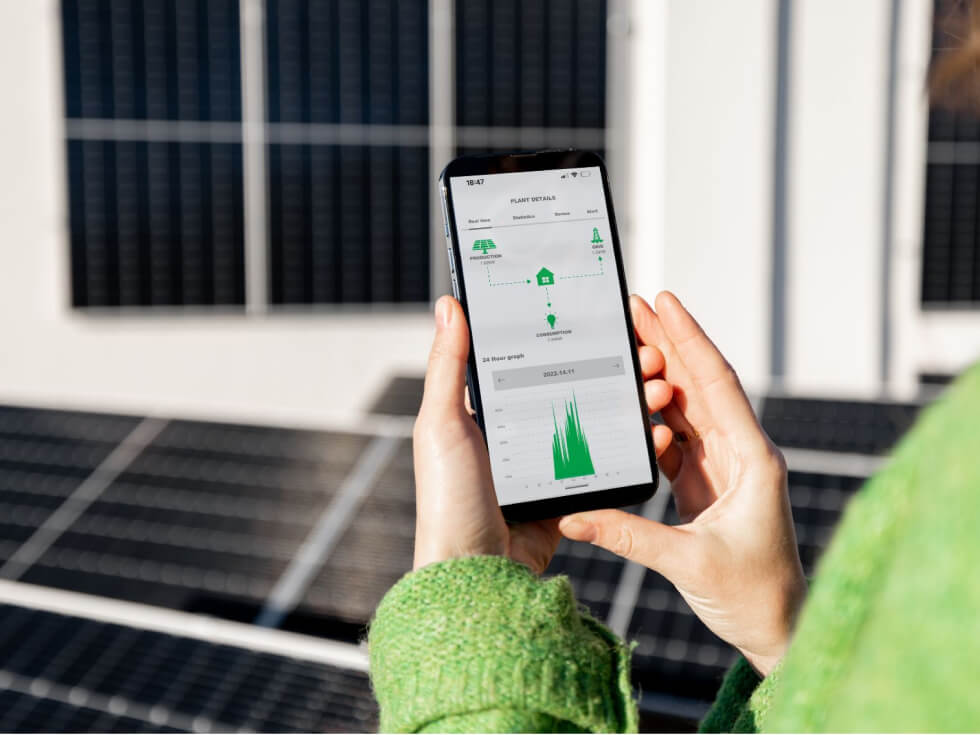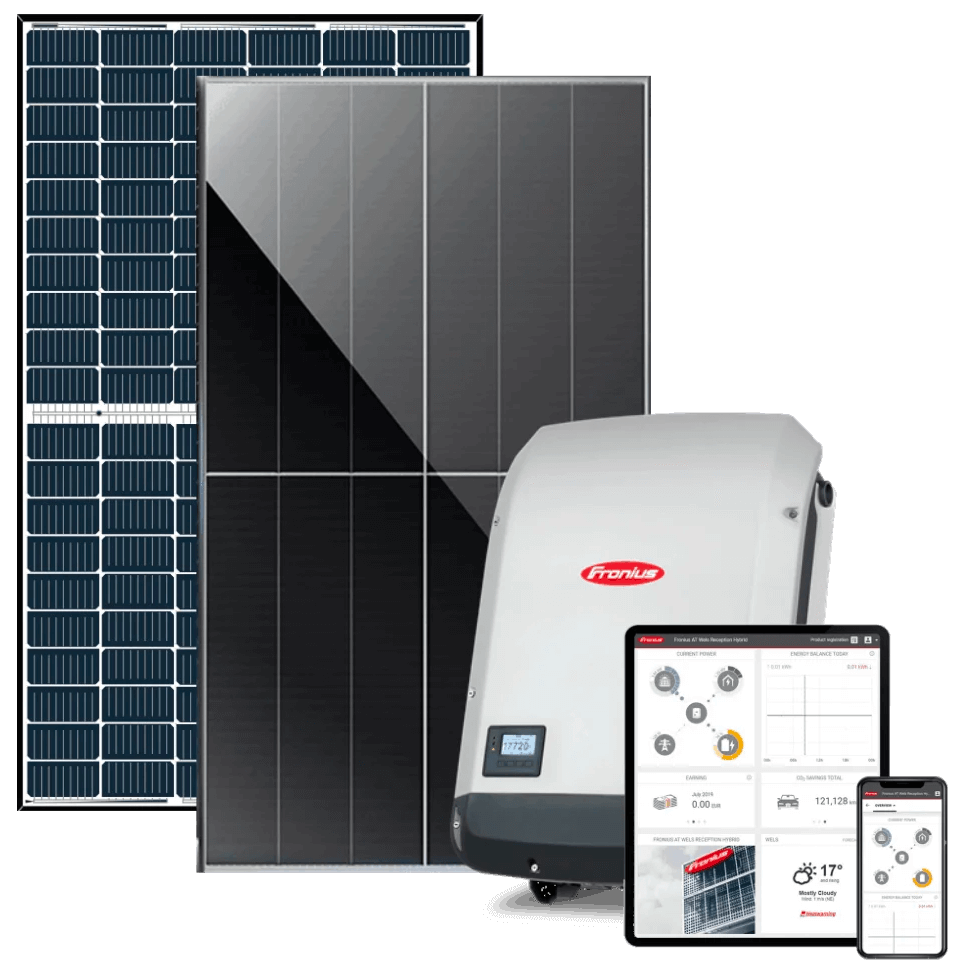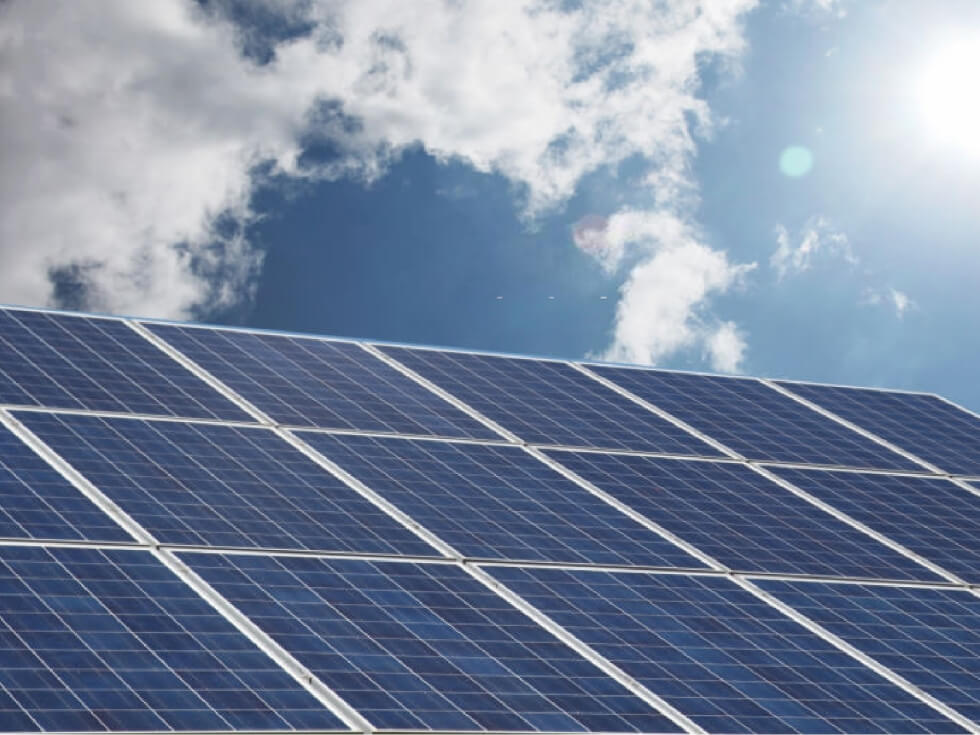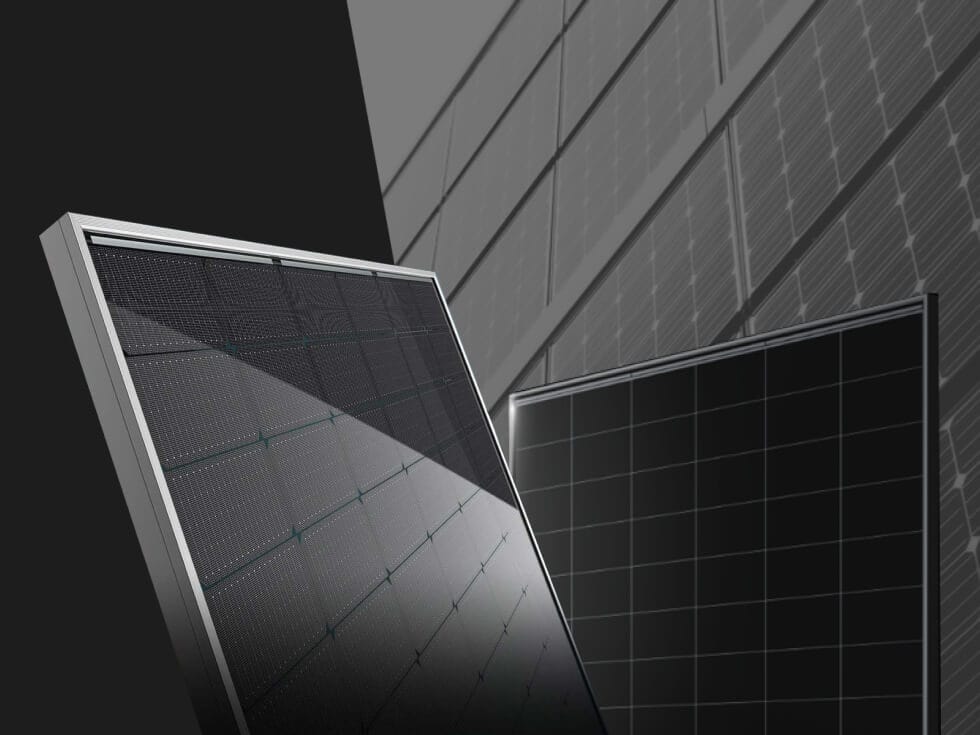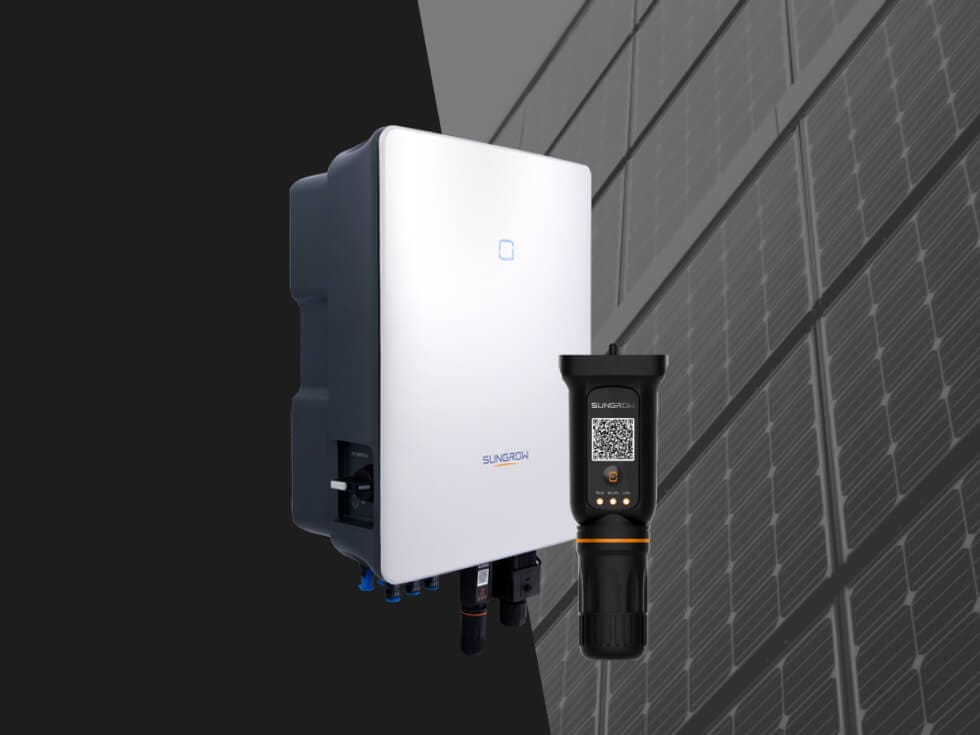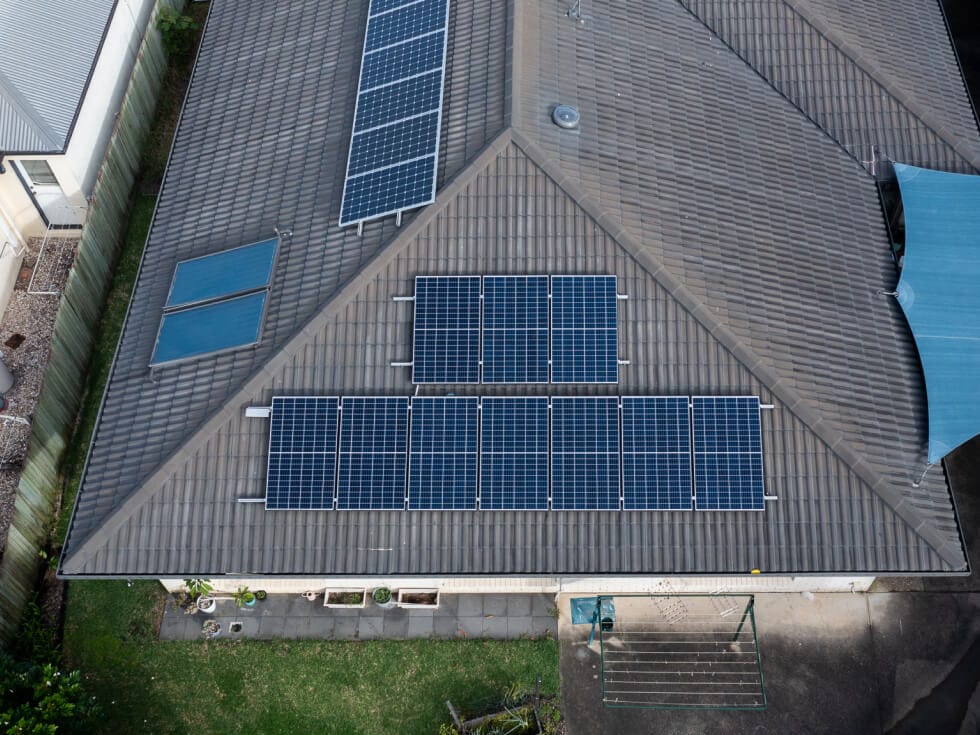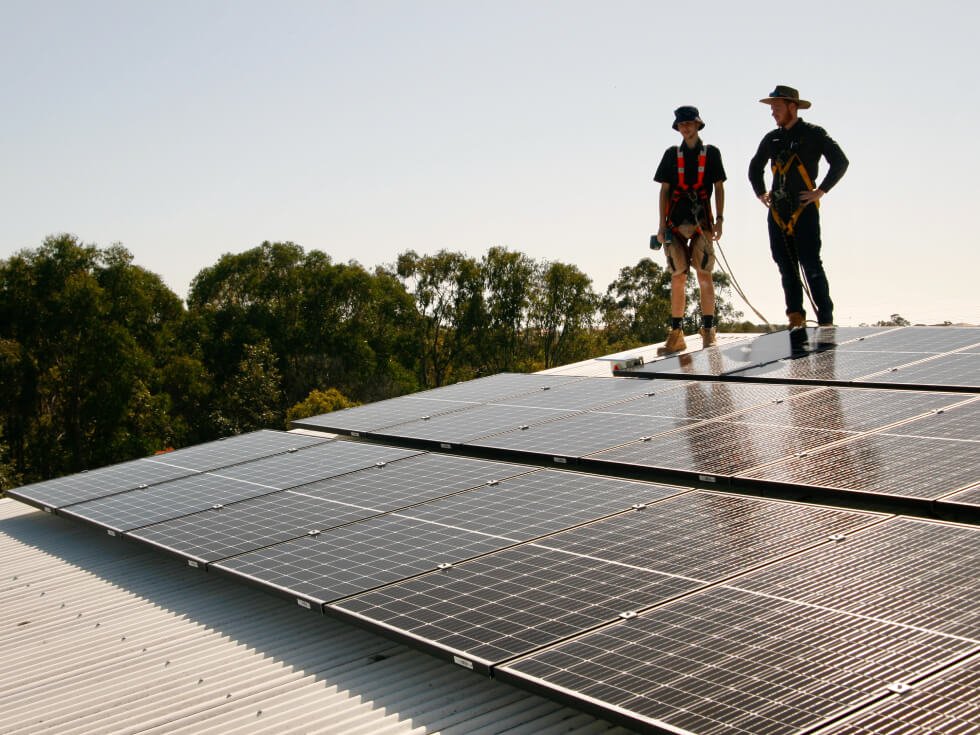As experts in the field, we understand the importance of monitoring the performance of your solar system to maximise its efficiency and longevity. In this article, we will explore the various tools and techniques for monitoring your solar panels, analysing data, optimising performance, and ensuring regular maintenance.
Solar system monitoring involves keeping a close eye on the performance of your solar panels to ensure they are working at their best. Regular monitoring allows you to identify any issues or malfunctions early on, preventing potential problems that could lead to downtime and decreased energy production. By monitoring your system, you can also analyse data to optimise energy generation, lower your electricity bills, and make informed decisions about energy consumption.
There are several tools and techniques available for solar system monitoring. From sophisticated software and monitoring systems to mobile apps and cloud-based platforms, these tools provide real-time data on the performance of your system. They offer insights into voltage, current, temperature, and other crucial metrics, allowing you to analyse and optimise your solar system’s efficiency. Additionally, monitoring systems can help with fault detection, diagnostics, and regular maintenance tasks, ensuring that your solar panels operate at their peak performance for years to come.
Key Takeaways
- Solar system monitoring is crucial for maximising efficiency and performance.
- Maintenance tasks, such as cleaning and regular inspections, are essential for optimal solar panel performance.
- Solar monitoring systems provide valuable data on system efficiency and allow for optimisation.
- There are various types of monitoring systems available, including sensor-based, cloud-based, and smartphone-compatible options.
- Benefits of solar system monitoring include increased energy efficiency, early issue detection, and optimised energy consumption.

The Importance of Solar Panel Maintenance
Regular maintenance is essential for the optimal performance of your solar panels. Cleaning them regularly to remove dirt and debris is important to ensure they can absorb as much sunlight as possible. Additionally, checking the wires and connections, ensuring proper alignment, and inspecting the mounting hardware are all critical steps in maintaining your solar panels. Finally, using a monitoring system can further assist you in tracking the performance of your system and identify any issues that may arise. Doing all these tasks helps your solar panels do their job better, which means you can get the most out of your investment in solar energy.
The Role of Solar Monitoring Systems
Solar monitoring systems play a crucial role in optimising the performance and maintenance of your solar system. By measuring key parameters such as voltage, current, and temperature, these systems provide valuable data on the efficiency and output of your solar panels. This data is essential for solar panel performance monitoring, system analysis, and maintenance. With the insights gathered from a solar monitoring system, you can identify any issues or inefficiencies in real-time and take proactive measures to improve the overall performance of your solar system.
Real-time performance monitoring
One of the main advantages of solar monitoring systems is their ability to provide accurate and up-to-date information on the energy production of your panels. By continuously monitoring the performance of your solar system, you can easily track its efficiency and ensure that it is operating at its optimal capacity. This allows you to make informed decisions regarding energy consumption and identify any potential issues before they escalate into costly problems.
Solar system monitoring maximises energy efficiency, detects issues early, and optimises energy consumption, ensuring you get the most out of your solar panel investment.
Data-driven system analysis
Solar monitoring systems enable you to analyse the performance data of your solar system over time. By studying this data, you can identify patterns, trends, and potential areas for improvement. This analysis can help you optimise the energy production of your solar panels, maximise their lifespan, and ultimately reduce your monthly electricity bills. With the help of solar monitoring software, you can access comprehensive reports, charts, and graphs that simplify the analysis process and provide actionable insights.
Lower maintenance cost
Investing in a solar monitoring system also simplifies the solar system maintenance process. By having access to real-time data on the performance of your solar system, you can efficiently schedule and plan maintenance activities. This includes routine cleaning, inspection, and any necessary repairs or replacements. Timely maintenance ensures that your solar panels operate at their highest efficiency and helps you avoid potential issues that could lead to a drop in performance or costly repairs in the future.
Reduced electricity bills
By leveraging the insights offered by a solar monitoring system, you can also adjust your energy usage patterns and operational strategies to significantly lower your electricity costs. This proactive approach that considers both production and consumption not only ensures the optimal performance of your solar panels but also allows you to reevaluate your habits that most impact your monthly energy expenditures and improve your bottom line.
Types of Solar Monitoring Systems
When it comes to monitoring the performance of your solar system, there are various types of solar monitoring systems available. These systems utilise different technologies and offer unique features to suit your specific monitoring needs. Understanding the different types can help you choose the best option for your solar setup.
Sensor-based Monitoring Systems
One type of solar monitoring system relies on sensors installed on your solar panels to collect real-time data. These sensors measure various parameters such as voltage, current, and temperature, providing valuable insights into the performance of your solar system. The collected data is then transmitted to a computer or smartphone app for easy monitoring and analysis.
Cloud-based Monitoring Systems
Another popular option is cloud-based monitoring systems. These systems store data in the cloud, allowing you to access it from anywhere with an internet connection. The data collected from your solar panels is securely stored and can be accessed through an online portal or smartphone app. Cloud-based monitoring systems provide flexibility and convenience, making it easier for you to monitor and analyse your solar system’s performance.
Smartphone Monitoring Apps
Many solar monitoring systems offer dedicated smartphone apps that allow you to monitor your system on the go. These apps provide real-time information on your solar system’s performance, making it easy to keep track of energy production and detect any issues. With a smartphone monitoring app, you can conveniently check on your solar system’s performance from anywhere, ensuring peace of mind and efficient system management.
With solar monitoring systems, you can stay informed about your system’s performance and proactively address any issues that may arise.
Whether you choose a sensor-based monitoring system, a cloud-based solution, or a smartphone app, solar monitoring systems offer valuable benefits. They give you real-time insights into your solar system’s performance, allowing you to optimise energy production and detect any issues early on. By monitoring your system consistently, you can maximise the efficiency and longevity of your solar investment.
Benefits of Solar System Monitoring
Solar system monitoring offers several benefits that can greatly enhance the performance and efficiency of your solar panel installation. By implementing a comprehensive monitoring system, you can take advantage of the following advantages:
- Increased Energy Efficiency: Solar system monitoring allows you to closely track the performance of your panels and identify any factors that may be impacting their efficiency. By monitoring key metrics such as voltage, current, and temperature, you can optimise your system’s energy production and ensure that it operates at its highest efficiency.
- Early Issue Detection: With a monitoring system in place, you can detect and address potential issues or malfunctions before they escalate into significant problems. By continuously monitoring your system’s performance, you can identify any deviations or abnormalities and take prompt action to rectify them. This early detection can help prevent downtime and costly repairs.
- Energy Consumption Optimisation: Monitoring data provides valuable insights into your energy consumption patterns, allowing you to make informed decisions about energy usage and optimise your overall consumption. By analysing the data collected by your monitoring system, you can identify opportunities for energy-saving adjustments and potentially lower your monthly electricity bills.
By harnessing the benefits of solar system monitoring, you can achieve optimal performance and longevity for your solar panels while reaping the financial and environmental rewards of renewable energy.
Components of a Solar Energy System
A solar energy system consists of several key components that work together to harness the power of the sun and convert it into usable electricity for your home or business.
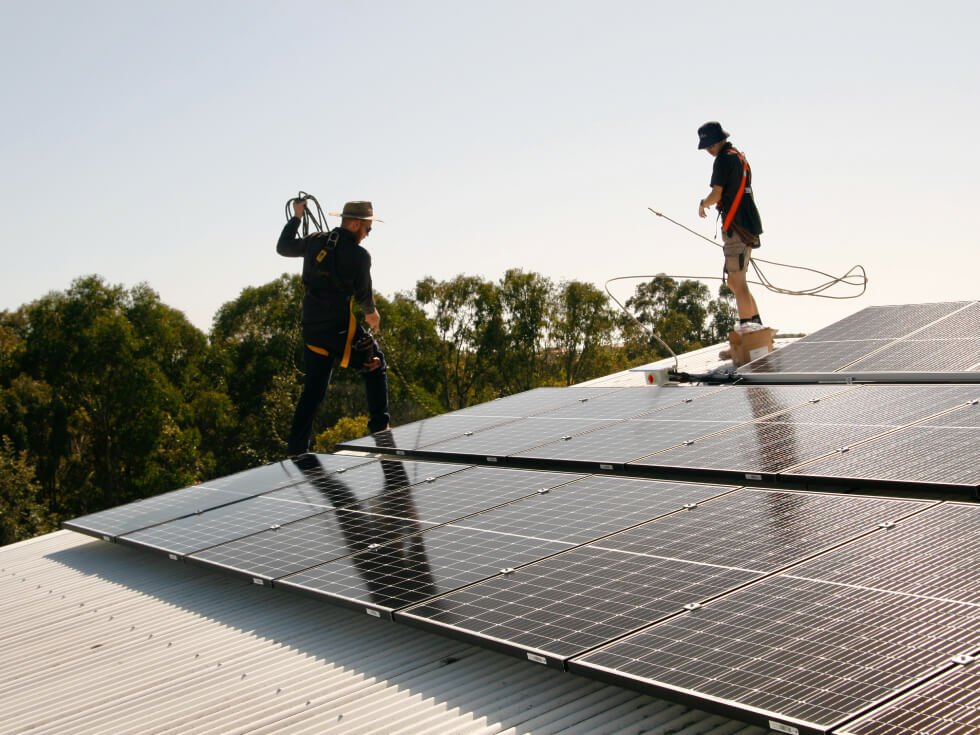
Solar Panels: Also known as photovoltaic (PV) panels, solar panels are the heart of a solar energy system. They are responsible for converting sunlight into direct current (DC) electricity through the photovoltaic effect.
Inverters: Inverters play a crucial role in converting the DC electricity produced by solar panels into alternating current (AC) electricity that can be used to power your home’s appliances or fed back into the grid.
Racking: The racking system encompasses the mounting structure that securely holds the solar panels in place. It ensures that the panels are properly aligned and angled to maximise their exposure to sunlight.
Optimisers: Optimisers are optional components that can be added to each solar panel individually. They help improve panel performance by mitigating the negative effects of shading or uneven sunlight distribution, allowing each panel to operate at its maximum capacity.
Electrical Meter: The electrical meter, also known as a bi-directional meter, tracks the amount of electricity produced by your solar panels and the amount of electricity consumed by your household. It measures the net energy flow, accounting for both power generation and usage.
Monitoring Equipment: Monitoring equipment is used to gather data on the performance of your solar energy system. It provides real-time and historical information on energy production, system efficiency, and any potential issues or faults that may arise.
Overall, a solar energy system is a complex integration of various components working together to harness the power of the sun. Understanding these components and their functions is essential for ensuring the optimal performance and longevity of your solar system.
Types of Solar Panel Monitoring Techniques
When it comes to monitoring the performance of your solar panels, you have various techniques at your disposal. These techniques allow you to track data, make adjustments, and gain valuable insights into the efficiency of your solar system. Let’s explore some of the most common monitoring techniques:
- Monitoring Software: Install monitoring software on your personal computer to track data and make necessary adjustments to optimise the performance of your solar panels. This software provides real-time information and helps you analyse and interpret the data collected from your system.
- Bluetooth Connection: Connect your phone or other devices to the inverter via Bluetooth to access real-time data about your solar system’s performance. This allows you to monitor your system on the go and make informed decisions based on the collected data.
- Data Logging: Utilise a central monitoring system or an online monitoring portal that offers data logging capabilities. These systems provide detailed insights into your solar system’s performance, allowing you to track historical data, identify trends, and analyse your system’s efficiency over time.
Benefits of Solar Power Monitoring Platforms
Solar power monitoring platforms offer several benefits. One of them is data interpretation, which is extremely important when it comes to maximising the performance of a solar system. With these platforms, you can easily analyse the data collected from your system and gain valuable insights into its efficiency and productivity.
Performance reporting is another key feature of these monitoring platforms. Through detailed reports, you can track the performance of your solar panels over time. These reports provide you with information on energy output, efficiency, and any potential issues that may arise. Having this knowledge allows you to take proactive measures to maintain and improve the performance of your solar system.
Economic evaluation is an essential aspect of solar power monitoring platforms. These platforms provide features that estimate cost savings and revenue generation based on the energy delivered by your solar system. By understanding the economic impact of your solar investment, you can make informed decisions on energy consumption and management, ultimately leading to financial benefits.
Fault detection and troubleshooting are also critical functionalities offered by solar power monitoring platforms. These platforms constantly monitor your solar system, alerting you in real-time to any faults or issues that may arise. By receiving timely notifications, you can quickly address and resolve any problems, ensuring the smooth operation of your solar system.
The Benefits at a Glance:
- Data interpretation for informed decision making;
- Performance reporting for tracking efficiency;
- Economic evaluation for estimating cost savings;
- Fault detection and troubleshooting for quick problem resolution.
Overall, solar power monitoring platforms provide a comprehensive solution for managing and optimising the performance of your solar system. From data interpretation to fault detection, these platforms empower you to make the most of your solar investment.
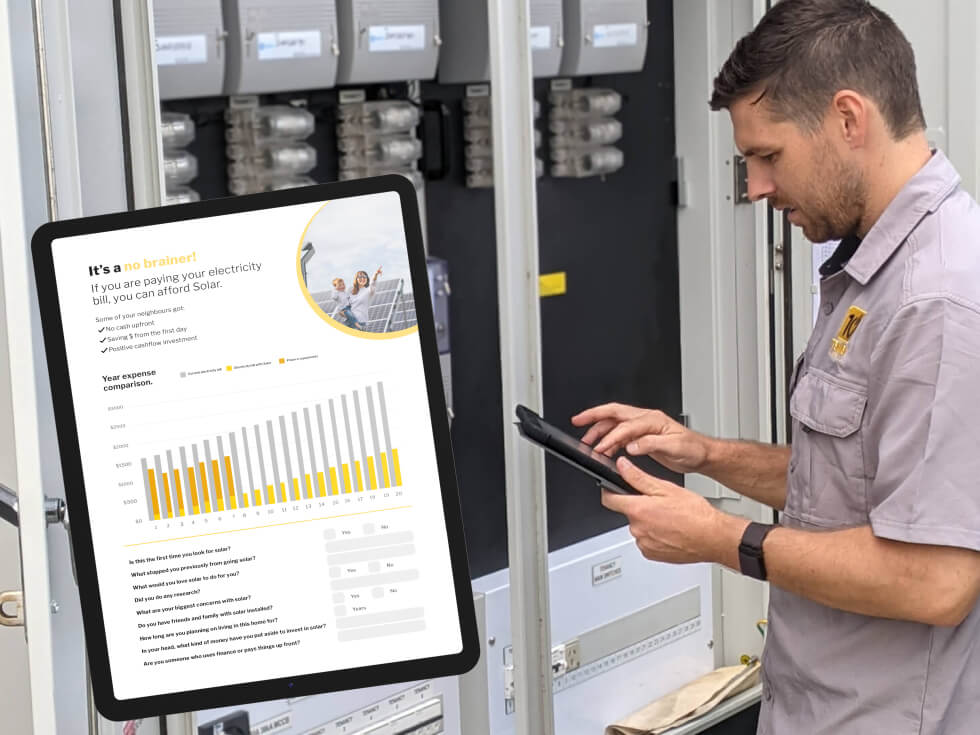
Conclusion
Solar system monitoring is a critical aspect of maintaining the efficiency and performance of your solar panels. By regularly monitoring and maintaining your system, you can ensure that it operates at its highest potential, maximising your investment and optimising energy production.
With the use of monitoring systems, you can easily track the performance of your solar panels and identify any issues that may arise. Early detection of problems allows for prompt adjustments, ensuring that your system continues to operate smoothly.
By investing in solar system monitoring and adopting good maintenance practices, you can enjoy the benefits of clean energy for years to come. Take advantage of the efficiency and performance potential of your solar panels through regular monitoring and care. Call us today to discuss the best solutions for your solar system!

